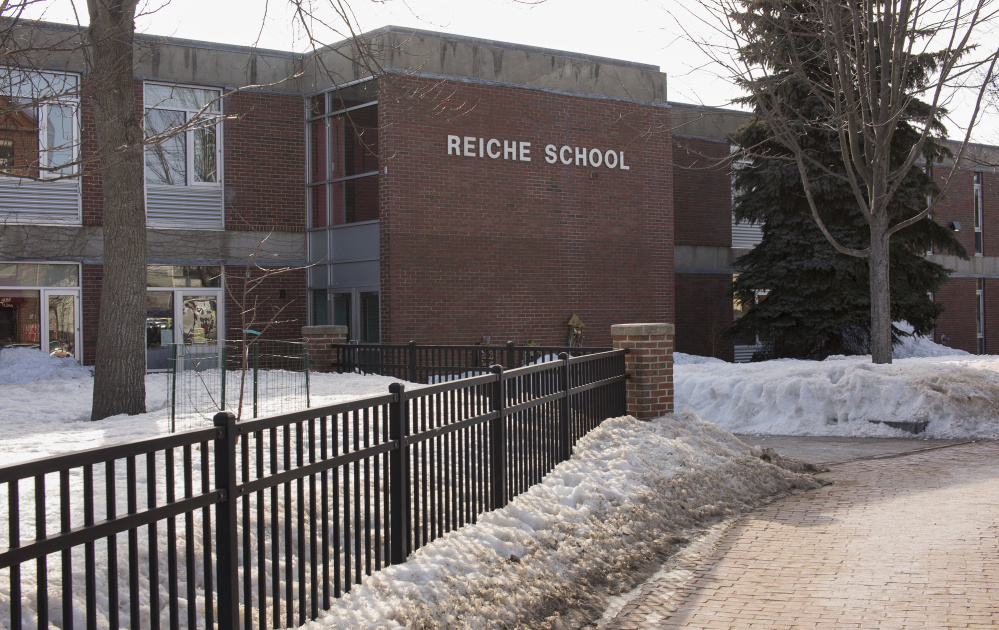You don’t need a scientist to explain why school facilities make a difference in education. All it takes is common sense.
A girl who is cold all winter won’t focus as well as one who’s warm. A boy in a loud and raucous room won’t have the same chance to build his reading skills as one in a quiet room, even if the first boy gets headphones to muffle the extraneous sound.
Kids who have to put on their coats and boots and trundle out of a trailer and into the snow when it’s time to change activities or even just to go to the bathroom won’t have as much time to spend on task as ones who spend all day inside a building.
Portland’s City Council will take an important vote Monday on how to invest in the city’s elementary schools and bring them all up to the same high standard.
The council will consider a proposal to bond $64 million to rebuild four elementary schools: Longfellow, Lyseth, Presumpscot and Reiche. Alternative proposals to start the project with a $32 million bond for two schools and another to bond $24 million for the high-priority projects in all the schools will also be on the table.
It’s not an easy question, but we support the comprehensive four-school bond because it would best meet the needs of both the families who live here now, and the families who would choose to come to Portland in the future because of its schools. Portland will not be able to achieve the kind of growth it needs without a major investment in vital public infrastructure, and that starts with a clear statement of commitment to high-quality neighborhood schools.
There are new schools at East End and Ocean Avenue and one under construction at the site of the Hall School, and Riverton Elementary was renovated in 2007. Students in those neighborhoods don’t face the same obstacles as those who attend school in the old buildings, even though they have the same needs and rights as their counterparts. As any kindergartner could tell you, that’s not fair.
City Councilors Nicholas Mavodones and Jill Duson make a compelling case for bonding two of the schools right away, and taking a chance on getting state funding for at least one of the others. They argue that there would be time to issue a second bond later if Portland is unsuccessful with the state, which has already decided against funding these schools.
It’s a reasonable proposal, but it lacks support on the council and in the community because it would not take into account the delicate politics behind this issue. It’s hard to argue that a bond would fix an equity problem if it invests in only two schools instead of four. It’s impossible to promise that a future council and electorate will come back and approve a second school bond issue right after they approved the first one.
And a scaled-back bond package does not put down Portland’s marker as a community that has a long-term commitment to high-quality education, which is the kind of commitment that attracts new families.
This is important because the Longfellow, Lyseth, Presumpscot and Reiche schools are just a small part of the aging city infrastructure that needs to be brought up to date. To pay for those upgrades, Portland needs to expand its tax base with new housing for people of all incomes, and commercial development that generates jobs for city residents as well as tax revenue.
The elementary school project is a long-overdue step in that process. The council should put the question out to the voters and let them decide if it’s a step they want to take.
Correction: This editorial was updated at 10 a.m. on March 18 to correct an inaccurate description of Riverton Elementary School. It is a not a new school, but it was recently renovated.
Send questions/comments to the editors.



Success. Please wait for the page to reload. If the page does not reload within 5 seconds, please refresh the page.
Enter your email and password to access comments.
Hi, to comment on stories you must . This profile is in addition to your subscription and website login.
Already have a commenting profile? .
Invalid username/password.
Please check your email to confirm and complete your registration.
Only subscribers are eligible to post comments. Please subscribe or login first for digital access. Here’s why.
Use the form below to reset your password. When you've submitted your account email, we will send an email with a reset code.